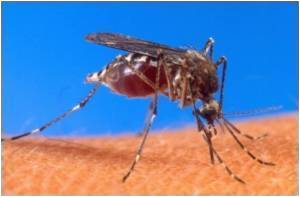Wolbachia bacteria, which infect many insects including mosquitoes, reduce parasite levels and kill the mosquito that spreads malaria,researchers have found.

But the researchers after artificial infection with different Wolbachia strains found that it can significantly reduce levels of the human malaria parasite, Plasmodium falciparum, in the mosquito, Anopheles gambiae.
The investigators also determined that one of the Wolbachia strains rapidly killed the mosquito after it fed on blood.
According to the researchers, Wolbachia could potentially be used as part of a strategy to control malaria if stable infections can be established in Anopheles.
"This is the first time anyone has shown that Wolbachia infections can reduce levels of the human malaria parasite (Plasmodium falciparum) in Anopheles mosquitoes," said Jason Rasgon, senior author of the study.
For the study, Rasgon and his colleagues infected Anopheles gambiae mosquitoes with two different Wolbachia strains (wMelPop and wAlbB).
Advertisement
Both Wolbachia strains were able to significantly inhibit malaria parasite levels in the mosquito gut. Although not virulent in sugar-fed mosquitoes, the wMelPop strain killed most mosquitoes within a day after the mosquito was blood-fed.
Advertisement
Source-ANI














